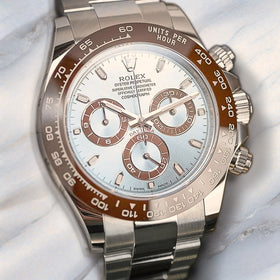It is important to distinguish between precision and accuracy when comparing the performance of quartz and mechanical watches. While quartz watches generally have better precision, mechanical watches can be more accurate over time.
Even though a mechanical watch may be permitted to vary +6/-4 seconds per day, it does not necessarily mean that it will consistently vary by that amount every day. Mechanical movements, except for rare tourbillon movements, are affected by the Earth's gravitational force, which can cause small variations in performance. However, these variations balance out over time, resulting in greater long-term precision than what a daily COSC measurement might indicate.
In contrast, quartz watches are more consistently precise on a daily basis, but their performance can be affected by changes in temperature and battery levels. A quartz watch that was 0.5 seconds off yesterday will likely remain that amount off indefinitely and may even accumulate greater deviations over time, with potential deviations of over 180 seconds at the end of a year.
Comparing these two types of watches can be challenging because their daily variations may not be directly comparable. For example, if a mechanical watch gains 2 seconds one day, it is difficult to predict how much it will deviate over time. Conversely, a quartz watch that gains 0.5 seconds every day may appear more precise, but its consistent deviation may make it less accurate in the long run. Ultimately, the choice between quartz and mechanical watches depends on personal preferences and needs.



